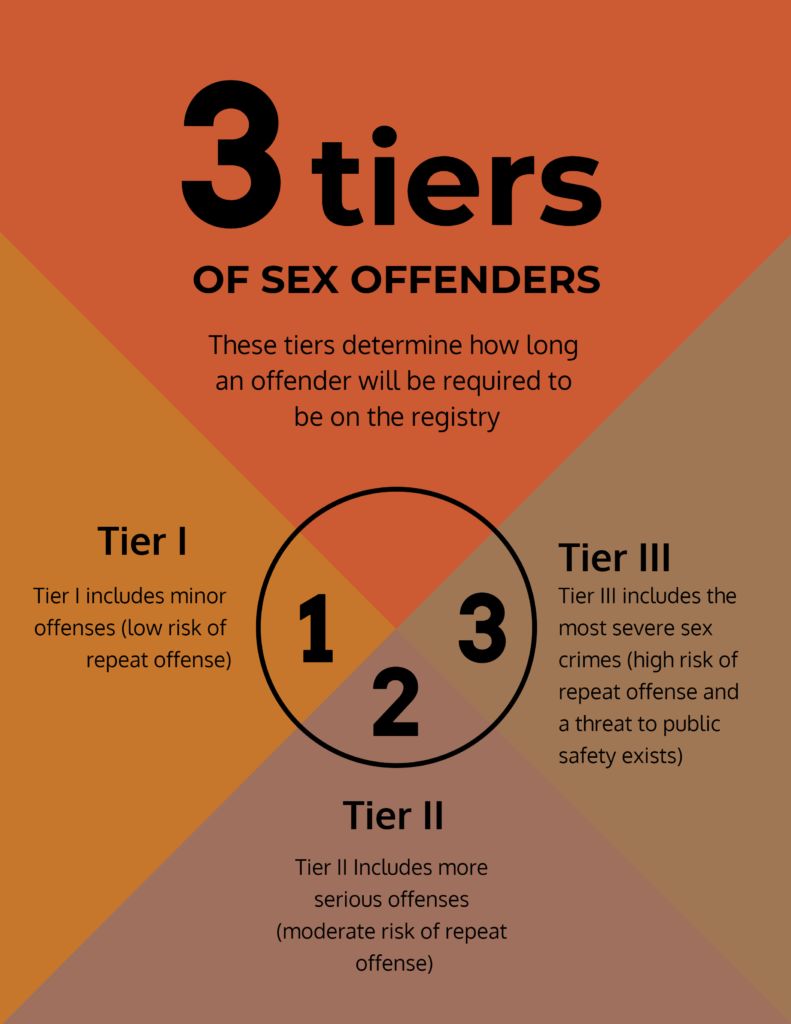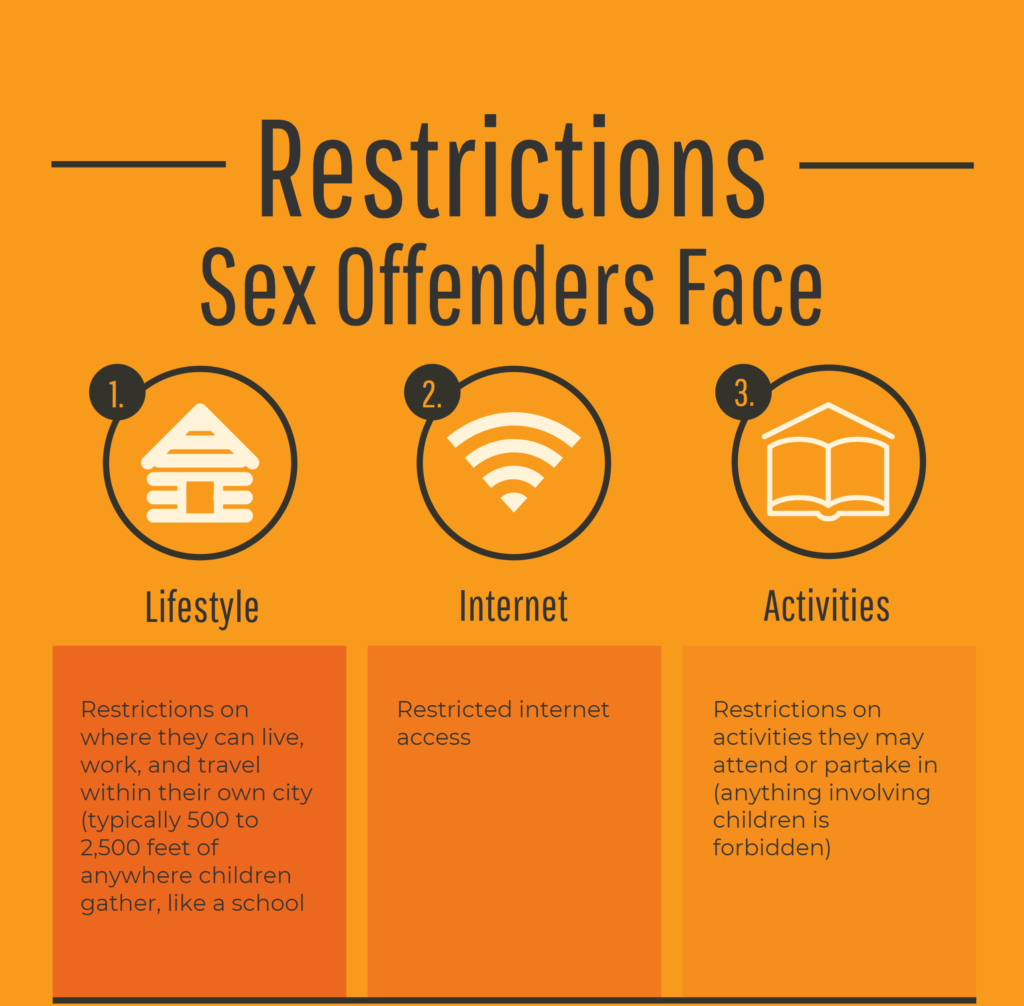

Individuals convicted of sex crimes in this country face more hardships beyond their sentence than those convicted of any other offense. Although laws aimed at people convicted of sex crimes intend to protect society, they often indirectly encourage harassment, ostracism, and even violence against sex offenders.
If you are arrested for a sex crime in Louisiana, it’s important to know what you may be up against following a conviction. The ramifications of a conviction will follow you far beyond the criminal sentence you may serve.
Louisiana Sex Offender Resources
What is the purpose of a sex offender registry?
In 1989, an 11-year-old boy was violently abducted from his Minnesota town. His mother, Patty Wetterling, pushed for the implementation of a public sex offender registry in the state so that families would be alerted when a sex offender moved in nearby. Thus began the push for sex offender legislation.
Sex offender registries primarily aim to protect children. They notify local law enforcement and the public about the whereabouts of sex offenders in their area and strive to reduce sexual violence in their communities. The idea is that an informed public will take proactive measures to avoid becoming victims of sex crimes and that these harsh realities will deter crime. Unfortunately, there is scant evidence to show that these registries accomplish any of these goals.
What will happen to me if I get on Louisiana’s sex offender registry?
Convicted sex offenders in Louisiana must register with the State Sex Offender & Child Predator Registry. Once you are on this registry, you will likely face several restrictions when going about your daily life. From finding a job to getting a roof over your head, former sex offenders face more hardships reintegrating into society than most other ex-convicts.
Louisiana’s sex offender and child predator registry requires convicted sex offenders to reveal sensitive personal information to the general public, including their address, place of work, mugshot, email address, phone number, and a detailed physical description. The listing also depicts the level of offense committed, whether tier I, II, or III.
How long will I be on the registry?
Louisiana sex offenders are placed on the registry for a minimum of 15 years, but the length of time depends on the specifics of the case:
- Tier I offenders must be on the registry for 15 years
- Tier II offenders must be on the registry for 25 years
- Tier III offenders must be on the registry for life
Common Restrictions Sex Offenders Face
Registered sex offenders face restrictions on where they can live, work, and travel. In Louisiana, they must also disclose their offenses on all their social media profiles. They may face any of these limitations:
Sex offenders must also frequently report their whereabouts to police. They have narrow time frames in which they must alert police to a change in their status; for example, if a sex offender moves to another town, he must immediately report his change of address to law enforcement or face criminal penalties.
Are sex offender registries helpful?
Considering the damage they do to offenders that have repaid their debts to society, one would think that they at least mitigate the prevalence of sex crimes. Politicians frequently promote sex offender legislation as a “silver bullet” to protect children, yet there is no hard evidence to show that registering sex offenders makes for safer communities. In fact, it is the people children know and trust the most that are responsible for committing over 90% of sex crimes against them.
The registry acts to inform people of sex offenders in their area in the hopes that they will take measures to avoid becoming victims. There is also no data to support the idea that these registries reduce recidivism amongst offenders. On the contrary, as a group, sex offenders are less likely than most criminals to re-offend.
Sex offender registries work to shame offenders after they have already served their time and completed rehabilitation. Many criminal justice advocates worry that further stigmatizing sex offenders can push them to re-offend, as they face unreasonable challenges to reintegrate into society.
How can a Louisiana sex crimes defense lawyer help?
In court, you are presumed innocent until proven guilty regardless of what charges you face. This is especially important when you are charged with a sex crime. An attorney with considerable knowledge and experience can fight to protect your rights at this uncertain time. Eric Johnson of The John D. & Eric G. Johnson Law Firm strives to protect the Constitutional rights of his clients at each step of the criminal justice process. He has over 24 years of experience defending clients against criminal charges in Louisiana. To learn more about how Eric can advocate for you, call 318-377-1555 or reach out to the firm online to schedule an appointment.
Frequently Asked Questions About Sex Offenders in Louisiana
What were Louisiana sex offender laws in 2019?
Convicted sex offenders in Louisiana must register with the State Sex Offender & Child Predator Registry. Once you are on this registry, you will likely face several restrictions when going about your daily life. From finding a job to getting a roof over your head, former sex offenders face more hardships reintegrating into society than most other ex-convicts.
What are sex offender registry laws in Louisiana?
Convicted sex offenders in Louisiana must register with the State Sex Offender & Child Predator Registry. Once on this registry, they’re likely to face restrictions in their daily life. The length of time that a person is on the State Sex Offender & Child Prdeator Registry depends on whether the sex crime is considered a tier 1, 2, or 3 offense. Louisiana’s sex offender and child predator registry also requires offenders to reveal sensitive personal information to the general public, including their address, place of work, mugshot, email address, phone number, and a detailed physical description.
What is a Tier 3 sex offender in Louisiana?
Louisiana sex offenders are placed on the State Sex Offender & Child Predator Registry for a specific length of time, which depends on the specifics of their case. Tier III offenders, which include the most severe cases with a high risk to re-offend, must be on the registry for life
What are the levels of sex offenders under Louisiana law?
In Louisiana, there are three tiers of sex offenders on the state’s Sex Offender Registry. Tier 1 is for minor offenses and is considered a low risk of a repeat offense. Tier 2 includes more serious offenses with a moderate risk of repeat offenses, while Tier 3 includes the most severe sex crimes, posing a high risk of a repeat offense and a threat to public safety.
What is a Tier 1 sex offender in Louisiana?
In Louisiana, a Tier 1 sex offender includes minor offenses with a low risk of a repeat offense. If you’re a Tier 1 offender, you must be on the registry for 15 years, compared to 25 years for Tier 2 offenders and on the registry for life for Tier 3 offenders.


